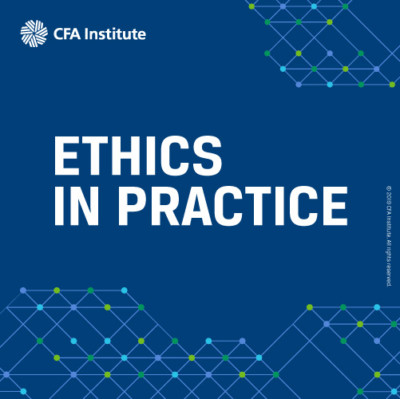Ethics in Practice: Responding to Research Analyst Inquiries. Case and Analysis–Week of 26 August
Check the analysis of this week’s case (26 August) to see if you made the right choice.
Case
Greenfield is the chief financial officer of HumanaHealthMD, a biotech firm that researches, develops, and commercializes pharmaceutical drugs for women’s health issues. Humana submits a new drug application to government regulators for a promising new drug for treating hormone deficiency. Two meetings scheduled with regulators to discuss the drug are postponed when the regulator states that unspecified deficiencies with the drug make such discussions premature. The public announcement of each meeting postponement results in a decline of more than 10% in the company stock.
When the meeting between regulators and company executives finally happens, Humana presents yet-to-be published preliminary test data with favorable indicators for the drug. The regulators react positively and give Humana preliminary regulatory approval contingent on further studies. After the meeting, six sell-side research analysts covering Humana inquire with Greenfield about the meeting. Greenfield responds by email and indicates that he believes the meeting with regulators was “very positive and productive” and that the company was “pleasantly surprised” by the reaction of the regulators. Greenfield does not share the favorable preliminary test data with the analysts. After the emails to the analysts, the stock price of the company increases 19%. Greenfield’s actions are
- appropriate because Greenfield does not share the unpublished preliminary test data with the analysts but restricts his comments to the general tenor of the meeting.
- appropriate because Greenfield responds to questions from research analysts covering the company.
- appropriate because Greenfield communicates with all six research analysts covering the company.
- inappropriate.
- none of the above.
Analysis
This case relates to selective disclosure of material nonpublic information. CFA Institute Standard of Professional Conduct II(A): Material Nonpublic Information prohibits CFA® charterholders from causing others to act on material nonpublic information. Information is material if its disclosure would affect the price of a security or if reasonable investors would want to know that information before making an investment decision. Information is “nonpublic” until it has been disseminated or is available to the marketplace in general. In this case, both the positive preliminary test results for the drug and the positive reaction of the regulators about a new drug is information that would have an impact on the price of the security and reasonable investors would want to know about.
Although Greenfield does not share the test results, he does share the fact that meeting with regulators was “positive and productive.” Greenfield also shares this information with only a select group of analysts who regularly cover Humana and not the general investing public. The fact that Greenfield is only responding to questions and not affirmatively contacting the select group of analysts is irrelevant. Greenfield and Humana should have issued a public announcement about the nature of the meeting with regulators prior to or simultaneously with disclosing that information to analysts in response to their questions. Choice D is the best response.
This case is based on a US SEC Enforcement Action in August 2019.
Let us know what you think of Ethics in Practice by taking this short survey.
Have an idea for a case for us to feature? Send it to us at ethicscases@cfainstitute.org.
More About the Ethics in Practice Series
Just as you need to practice to become proficient at playing a musical instrument, public speaking, or playing a sport, practicing assessing and analyzing situations and making ethical decisions develops your ethical decision-making skills. The Ethics in Practice series gives you an opportunity to “exercise” your ethical decision-making skills. Each week, we post a short vignette, drawn from real-world circumstances, regulatory cases, and CFA Institute Professional Conduct investigations, along with possible responses/actions. We then encourage you to assess the case using the CFA Institute Ethical Decision-Making Framework and through the lens of the CFA Institute Code of Ethics and Standards of Professional Conduct. Then join the conversation and let us know which of the choices you believe is the right one and explain why. Later in the week, we will post an analysis of the case and you can see how your response compares.
Image Credit: ©CFA Institute


Inappropriate since Greenfield has not mentioned ” contingent on further studies” to research analyst. The comment made to analysts sounds the development would most certainly lead to increased revenue and profit for the company in future, which is not the case.
A is Correct
D
Inappropriate being lack of market integrity by hiding that the approval is contingent on future researches
A. Appropriate because the company did not share details of the unpublished report with the analyst.
D, because it looks like a violation of Standard II A Material Non Public Information. Ideally, Greenfield should not share information with the sell side analysts and there should be firewalls in place for dissemination of such information.
A. appropriate because Greenfield does not share the unpublished preliminary test data with the analysts but restricts his comments to the general tenor of the meeting.
D. Inappropriate
D
B
D. The comments from Greenfield May be covered under standard 1(c)-misrepresentation of facts as he omitted to mention while responding to the analysts that the approvals were contingent on further studies
D. Greenfield didn’t specify that the future revenues where subject to contingent future studies hence misrepresentation of information to the analyst which is unethical
D
inappropriate
I go with Option A